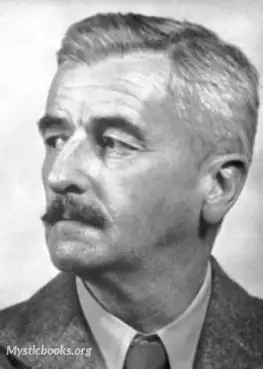
Soldiers' Pay
'Soldiers' Pay' Summary
"Soldiers' Pay" is a novel written by Nobel Prize-winning author William Faulkner. This book is set in the aftermath of World War I and explores the experiences of soldiers as they attempt to reintegrate into civilian life. Through its characters, the novel delves into themes of loss, trauma, and the search for meaning and purpose in a world forever changed by conflict.
The story follows a group of soldiers who have returned home from the war, each with their own experiences, wounds, and traumas. The protagonist, a pilot named Gavin Stevens, is tasked with bringing one of the soldiers home to his family. Along the way, Stevens and the other characters must navigate the physical and psychological toll of war, as well as the challenges of reintegrating into a society that has changed dramatically since their deployment.
Faulkner's writing style in "Soldiers' Pay" is characterized by its innovative narrative structure and its insightful and often poetic portrayal of the human condition. The novel is a powerful meditation on the toll of war and its aftermath, exploring the complexities of human emotion and experience with a depth and nuance that is rarely seen in literature.
"Soldiers' Pay" is widely regarded as one of William Faulkner's most important works, and it remains a classic of modern American literature. In addition to its literary significance, the novel is also notable for its historical context, as it was written just a few years after the end of World War I. For fans of Faulkner, as well as anyone interested in exploring the themes of war and its aftermath in literature, "Soldiers' Pay" is a must-read.
Book Details
Language
EnglishOriginal Language
EnglishPublished In
1926Authors

William Faulkner
United States
William Faulkner is considered one of the greatest American writers of the 20th century. He was born in New Albany, Mississippi, in 1897 and lived much of his life in the southern United States. Throu...
Books by William FaulknerDownload eBooks
Listen/Download Audiobook
- Select Speed
Related books

Mulato by Aluísio Azevedo
O Mulato é um romance do autor brasileiro Aluísio Azevedo que retrata a sociedade maranhense do século XIX. A história gira em torno de Raimundo, um...

Uther and Igraine by Warwick Deeping
The story revolves around the lives of King Uther and Queen Igraine, who are the parents of the legendary King Arthur. The book is set in ancient Brit...

Clarissa Harlowe, or the History of a Young Lady - Volume 6 by Samuel Richardson
Clarissa Harlowe is a sprawling epistolary novel that tells the story of a young woman's struggle to maintain her virtue in a world that seems determi...

Gevoel en Verstand by Jane Austen
Gevoel en Verstand, originally titled "Sense and Sensibility", tells the story of two sisters, Elinor and Marianne Dashwood, navigating the complexiti...

Schrei by Stanisław Przybyszewski
''Schrei'' by Stanisław Przybyszewski is a novel that delves into the artistic and emotional landscape of the author's time spent in Berlin's bohemian...

Chaperon by Henry James
In Henry James's "The Chaperon," Rose Tramore confronts a societal dilemma. Her mother's questionable past casts a shadow over their family, leading t...

Indiana by George Sand
Indiana, a young woman trapped in a loveless marriage, longs for a life of freedom and self-determination. Bound to a wealthy but uncaring older husba...

Werde, die Du bist by Hedwig Dohm
In 'Werde, die Du bist,' Hedwig Dohm delves into the psychological and societal complexities of a woman navigating life after her husband's death. The...

In the Village of Viger by Duncan Campbell Scott
Amidst the whispering pines and hidden secrets of the quiet village of Viger, a timeless tale of love, intrigue, and human nature unfolds. Duncan Camp...

That House I Bought; A Little Leaf From Life by Henry Edward Warner
'That House I Bought' is a charming and witty account of the author's experiences purchasing a home in the early 1900s. Written with a lighthearted an...
Reviews for Soldiers' Pay
No reviews posted or approved, yet...